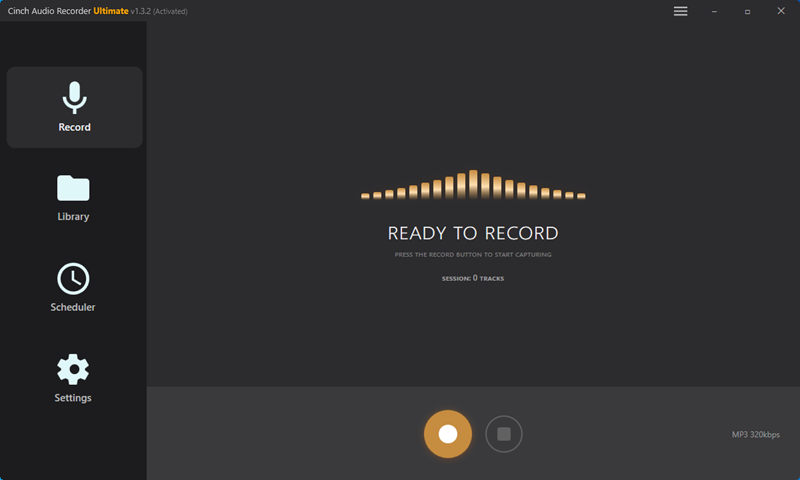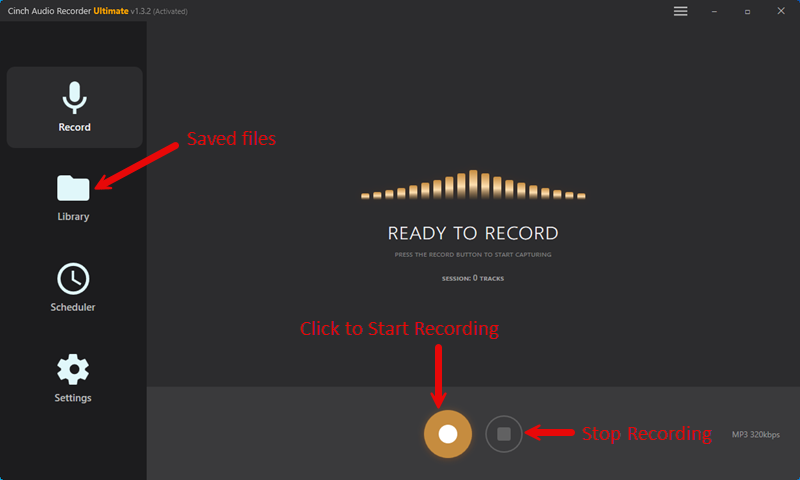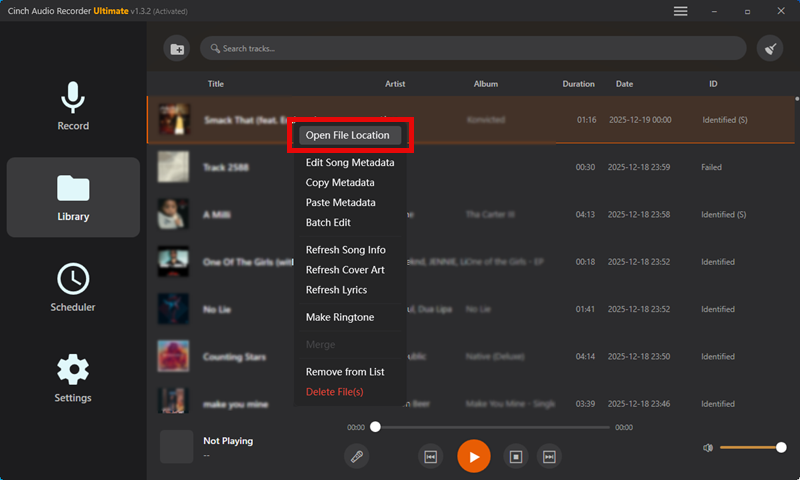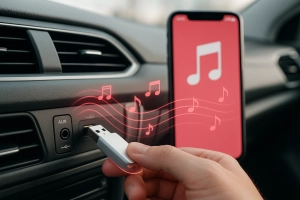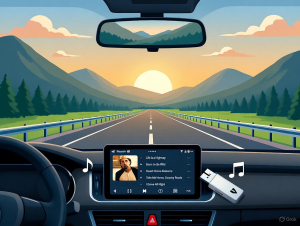Ever tried dragging your favorite Apple Music tracks into Djay Pro, only to watch them sit there like stubborn mules?
Yeah, I’ve been there too.
Spent a whole weekend trying to figure out why my carefully curated Apple Music playlists wouldn’t play in Djay Pro, only to discover the frustrating truth about DRM protection.
Turns out, thousands of DJs face this exact same headache. You pay for Apple Music, you download the tracks, but somehow they’re still locked away from your DJ software. Not gonna lie, it’s pretty annoying when you realize your streaming library is basically useless for mixing.
But here’s what I figured out after testing way too many solutions: there’s actually a reliable workaround that lets you convert Apple Music for DJ use without losing quality. I’ll walk you through the exact method I use, plus share some mistakes I made so you don’t have to.
In This Article:
Why Your Apple Music Won’t Play in Djay Pro (And It’s Not Your Fault)
Here’s what actually works: only tracks you’ve purchased from the iTunes Store. Not the streaming songs from your Apple Music subscription. I know, I know—it sounds ridiculous.
The culprit? Digital Rights Management (DRM) protection. Think of it like a digital bouncer that only lets Apple’s own apps into the club. Even though you’re paying monthly for Apple Music, you don’t technically “own” those streaming tracks—you’re just renting access to them.
What actually works in Djay Pro:
- Songs you bought from iTunes Store (the old-school way)
- Local music files you own (MP3, WAV, AIFF, FLAC)
- Tracks you ripped from your own CDs
What gets blocked:
- Apple Music streaming tracks (even downloaded ones)
- Any song with DRM protection
This hit me hard when I realized my 500+ song Apple Music playlist was basically useless for DJ sets. But here’s the thing—I found a workaround that’s actually better than the official integration.
The Technical Stuff (Don’t Worry, I’ll Keep It Simple)
So why exactly do your Apple Music tracks act like they’re allergic to Djay Pro? It all comes down to how streaming services lock down their content.
Apple Music wraps every song in Advanced Audio Coding (AAC) with DRM encryption. Imagine each track wearing an invisible straightjacket that only Apple’s apps know how to remove. When Djay Pro tries to play these files, it’s like trying to open a locked safe without the combination.
Here’s how the protection actually works:
- Songs get encrypted the moment you download them
- Only Apple’s authorized apps have the decryption keys
- Third-party DJ software gets completely shut out
- Your files become digital paperweights outside Apple’s ecosystem
And before you ask—yes, Spotify, Tidal, and pretty much every streaming service does this. It’s their way of keeping the record labels happy while still letting you stream music legally.
My Go-To Solution That Actually Works
After trying probably a dozen different converters (and wasting way too much time), I finally found something that works reliably: Cinch Audio Recorder.
Here’s why this tool clicked for me: instead of trying to crack DRM protection (which breaks every time Apple updates something), Cinch takes a smarter approach. It records the audio as it plays through your computer, capturing perfect-quality copies without any sketchy DRM-cracking business.
Why Cinch actually works (unlike most other tools):
- Records at original streaming quality (up to 320kbps MP3 or lossless WAV)
- Automatically grabs ID3 tags, artwork, and all that metadata stuff
- Works with any streaming service—not just Apple Music
- Has built-in ad filtering for free Spotify accounts (pretty clever)
- Bonus: can turn any track into a custom ringtone
The software uses something called CAC (Computer Audio Capture) technology. Basically, it taps directly into your computer’s sound card and captures the exact same audio quality you’d hear through your speakers. No weird compression or quality loss—just clean, DJ-ready files.
💡 Quick Reality Check: I tested this against five other converters, and Cinch was the only one that consistently worked after Apple Music updates. The others? They’d work for a week, then break completely.
Why I Stopped Using Everything Else
Honestly? I wasted way too much time testing other converters before finding Cinch. Most fall into two frustrating categories: they either work for a hot minute then break, or they turn your music into potato-quality audio files.
Here’s what I learned the hard way:
| Tool Type | Quality | Reliability | My Experience |
|---|---|---|---|
| Cinch Audio Recorder | Original 320kbps | Rock solid | ✅ Still works after 6 months |
| Online converters | Compressed mess | Hit or miss | ❌ Stopped working after 2 weeks |
| Free tools | Usually 128kbps max | Breaks constantly | ❌ More trouble than they’re worth |
| DRM crackers | Variable | Terrible | ❌ Dead after every Apple update |
The batch conversion feature sealed the deal for me. I can queue up entire playlists before bed and wake up to a folder full of DJ-ready tracks. No babysitting required.
Get Cinch Audio Recorder (both versions):
My Exact Step-by-Step Process (Takes 5 Minutes to Set Up)
Alright, here’s the exact method I use to convert Apple Music tracks for DJ use. I’ve done this probably 200+ times now, so I’ve got it down to a science. The setup takes about 5 minutes, then everything runs on autopilot.
Step 1: Get Cinch Installed (Takes 2 Minutes)
Download Cinch from the official website and run the installer. The setup is pretty straightforward—just click “Next” a bunch of times and you’re good to go.
Step 2: Dial in Your Settings (This Part Matters)
Before you start recording, click the “Settings” button and tweak these options:
- Format: MP3 at 320kbps (trust me on this one)
- Output folder: Create a dedicated “DJ Tracks” folder somewhere you’ll remember
- ID3 tags: Turn on automatic tag detection (saves tons of time later)
Why 320kbps MP3? I tested WAV files thinking they’d sound better, but honestly? The file sizes are massive and most club sound systems can’t tell the difference. 320kbps MP3 hits that sweet spot of quality and practicality.
Step 3: Hit Record and Let It Listen
Click that big red “Record” button in Cinch. Now the software is basically eavesdropping on everything that plays through your computer’s audio system.
Step 4: Fire Up Apple Music and Start Playing
Open Apple Music and start playing the songs you want to convert. Cinch automatically detects when new tracks start and creates separate files for each one. Pretty smart, right?
⚠️ Volume Tip: Crank Apple Music’s volume to maximum for the best recording quality. You can mute your computer speakers if you don’t want to actually hear the playback—Cinch will still capture everything perfectly.
Step 5: Queue It Up and Walk Away
This is where it gets really convenient. The software handles track separation, ID3 tag detection, and file naming automatically. I usually queue up entire playlists before bed and wake up to a folder full of DJ-ready tracks.
Step 6: Get Your Tracks into Djay Pro
Once Cinch finishes its magic, open Djay Pro and add your shiny new music folder:
- Click the folder icon in Djay Pro’s sidebar
- Hit “Add Folder” and navigate to your converted tracks
- Boom—your Apple Music songs now show up in Djay Pro’s library
Other Methods I Tried (And Why They Didn’t Work Out)
Look, Cinch isn’t the only game in town. I tested a bunch of other options before settling on it, so here’s the honest breakdown:
Free alternatives I tested:
- Audacity: Works, but you have to manually start/stop recording for each track. Got old fast.
- OBS Studio: Primarily for streaming, but can record audio. Way more complicated than needed.
Paid competitors:
- AudiCable Audio Recorder ($39.95): Decent, but interface feels clunky
- TuneFab Apple Music Converter ($49.95): Worked for a month, then broke after an Apple update
- NoteBurner Apple Music Converter ($39.95): Good quality, but slower batch processing
Why I keep coming back to Cinch: The reliability factor is huge. I’ve watched other tools break every time Apple pushes an update, but Cinch’s recording-based approach just keeps working. Plus, at $25.99, it’s actually cheaper than most competitors while being more reliable.
DJ Performance Tips That Actually Matter
Now that you’ve got your Apple Music tracks playing nice with Djay Pro, here are some optimization tricks I’ve picked up:
File organization (trust me, this saves hours later):
- Create genre-based folders: House, Hip-Hop, Pop, etc.
- Stick to consistent naming: “Artist – Track Title” (no weird characters)
- Add BPM info to file tags if you can—makes beatmatching way easier
Quality control:
- 320kbps MP3 is your sweet spot for professional gigs
- Always test converted tracks on a proper sound system before big events
- Keep backup copies of your go-to tracks (learned this the hard way)
Performance optimization:
- Store DJ tracks on an SSD—loading times matter when you’re live
- Organize playlists by energy level: Warm-up, Peak Time, Cool Down
- Use Djay Pro’s preparation features to set cue points and loops ahead of time
💡 Real Talk: I spent my first year DJing with poorly organized files. Don’t be me. Take 10 minutes to set up a proper folder structure—your future self will thank you.
The Legal Stuff (Let’s Keep It Real)
Okay, let’s address the elephant in the room: is this actually legal? Short answer: yes, for personal use. Recording music you have legitimate access to (through your Apple Music subscription) for personal DJ use generally falls under fair use.
Stay on the right side of the law:
- Only convert music you actually have access to through your subscription
- Don’t share converted files with friends (seriously, don’t)
- Personal DJ sets and private parties? You’re good
- Public performances? Make sure your venue has proper licensing
For commercial DJs: If you’re getting paid to play music publicly, venues should have licensing agreements with ASCAP, BMI, or SESAC. That’s on them, not you—but it’s worth checking.
⚠️ Disclaimer: This method is for personal use and private events. I’m not a lawyer, so if you’re planning to use this commercially, maybe chat with someone who actually went to law school.
Bottom Line: It’s Actually Pretty Simple
Converting Apple Music for Djay Pro doesn’t have to be a headache. With the right tool—like Cinch Audio Recorder—you can build a solid DJ library from your streaming collection while keeping that crisp audio quality.
The secret sauce? Pick a conversion method that won’t break every time Apple decides to update something. Recording-based solutions like Cinch just keep working, so you can focus on perfecting your mixes instead of troubleshooting software.
Ready to finally use your Apple Music library for DJ sets? Grab Cinch Audio Recorder and start converting. Your future DJ self will thank you.
FAQ
Can I use Apple Music directly in Djay Pro without converting?
Only if you actually bought the songs from iTunes Store. Streaming Apple Music tracks are locked down with DRM protection, so they won’t play in third-party DJ software.
Will converted Apple Music files work in other DJ software?
Absolutely. Once you convert them to MP3 or WAV, they’ll work in any DJ software—Serato, Virtual DJ, Traktor, you name it.
Does converting Apple Music violate copyright laws?
For personal use, recording music you have legal access to is generally considered fair use. Just don’t start distributing the converted files to your friends.
What’s the best audio quality setting for DJ use?
320kbps MP3 hits the sweet spot of quality and file size. WAV files sound marginally better but take up way more space—not worth it unless you’re playing massive festival sound systems.
How long does it take to convert a full playlist?
It happens in real-time, so a 60-minute playlist takes about 60 minutes to convert. I usually queue up big playlists overnight and wake up to a folder full of DJ-ready tracks.



